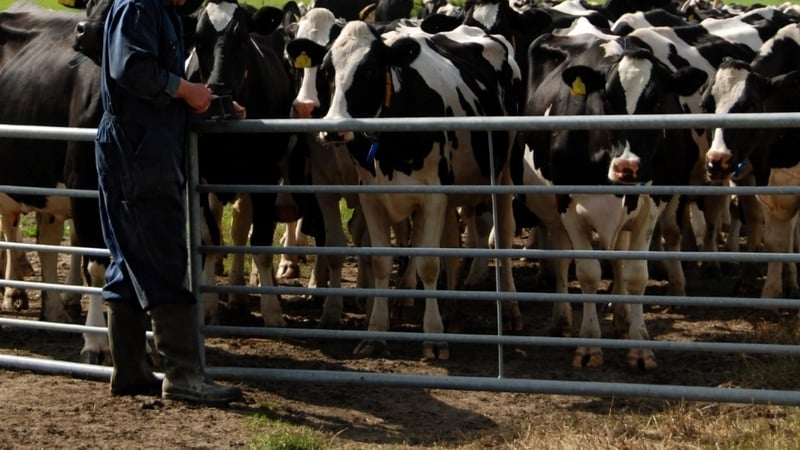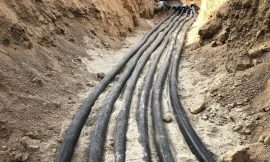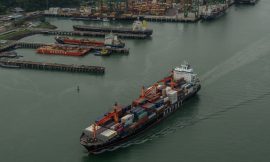Analysis: Modern challenges and opportunities have transformed the farming landscape, leading many to take on a second job away from the farm
By Caroline Murphy and Mary Curtin, University of Limerick
In today’s Irish economy, the role of farmers extends far beyond the fields. As a primary economic activity, farming shapes the socio-economic landscape and influences choices around career paths and livelihoods. It’s more than just a job; it’s a way of life, deeply rooted in family tradition and local culture.
One in three farmers in Ireland is now over the age of 65 and the transfer of farms to the next generation is made more complex by the fact that increasingly more farmers combine farming with a second role. Modern challenges and opportunities have transformed the landscape, leading many farmers to balance their agricultural responsibilities with other occupations.
To ensure the sustainability of rural communities and the agricultural sector, it is crucial to strengthen the connection between farming communities and wider society. For many, the workplace serves this function as a place where farmers and non-farmers connect, but the workplace is often overlooked in the important role it serves in this regard.
We need your consent to load this rte-player contentWe use rte-player to manage extra content that can set cookies on your device and collect data about your activity. Please review their details and accept them to load the content.Manage Preferences
From RTÉ Radio 1’s Countrywide, how the traditional way farms are handed down from one generation to the next is changing
According to Teagasc, the number of farmers balancing farming with a second job now stands at approximately 40%. However, the proportion of farm households where either the farmer or spouse was employed off-farm raises the number to 59%. This means that farmers are significantly represented across Irish workplaces in a whole array of other occupations.
In Ireland, the evolution of rural society has been marked by significant shifts towards digital connectivity, sustainable agriculture and diversified employment opportunities. The traditional practice of primogeniture, where the oldest son inherits the family farm, often limited their educational opportunities and career choices. Today, succession decisions are more flexible, allowing for a broader range of career paths. Increasing numbers of Irish family farming offspring are pursuing higher education and non-farming careers, reflecting a significant cultural shift.
Pursuing a second role can be driven by either necessity or choice. Economic necessity often drives farmers to diversify their sources of income. Research by Teagasc showed steep reductions in farm income in 2023 across all farming sectors, with an average farm income of €19,925. Many farmers take on additional roles that complement their farming activities, particularly such as working in flexible or remote jobs. Farmers being forced to take a second job through economic necessity is arguably a failure of policy or practice where farming cannot provide a sustainable income.
We need your consent to load this rte-player contentWe use rte-player to manage extra content that can set cookies on your device and collect data about your activity. Please review their details and accept them to load the content.Manage Preferences
From RTÉ Radio 1’s Countrywide, who will be farming the land in the next generation? Interview with Dr Emma Dillon from Teagasc
But some farmers choose a dual career or second job for other reasons. For example, some may have vocational training and skills in areas that they want to contribute, or engaging in off-farm work provides an outlet for social interaction which they may not have in farming. This dual-career approach can mitigate the financial risks associated with farming and leverages diverse skill sets, contributing to a more resilient and adaptable agricultural community.
Despite the growing trend of dual careers among farmers, there is limited recognition of the challenges and contributions of these individuals. The role of off-farm employment is central to the viability of farm households and the sustainability of rural communities. Farmers who work second jobs are not only securing their own livelihoods but also supporting the broader socio-economic fabric of their communities.
In contrast, there is significant recognition among policymakers of the need to encourage positive change with regard to balancing work and home life commitments. Yet there is ambiguity on how the combination of off-farm employment and farming is regarded: is it considered one job, two jobs, or as a job and a lifestyle?
We need your consent to load this rte-player contentWe use rte-player to manage extra content that can set cookies on your device and collect data about your activity. Please review their details and accept them to load the content.Manage Preferences
From RTÉ Radio 1’s Countrywide, Head of Veterinary Ireland Hazell Mullins on the realities of life as a dairy farmer and vet
Recognising farmers for their dual roles is essential. These individuals embody resilience, adaptability and dedication in balancing demands within and outside the workplace. They navigate the complexities of modern agriculture while contributing to other sectors, demonstrating a remarkable ability to balance multiple responsibilities. By acknowledging their efforts, society can better appreciate the vital role farmers play in sustaining both the agricultural industry and the wider economy.
To do this effectively, those with a farming identity must feel at ease in the organisations in which they work. This includes feeling secure in the knowledge that their farming role will not negatively impact on their ability to pursue opportunities within their organisation, should they want to. Farming requires long hours, adaptability and perseverance, qualities which translate well into non-farming roles that demand dedication, problem-solving and the ability to work under pressure.
The integration of farming and non-farming backgrounds can also foster greater understanding and collaboration between different groups. Farmers who work in non-farming roles can advocate for agricultural interests, promote sustainable practices and bridge the gap between urban and rural communities. Their unique insights can contribute to more informed decision-making and policy development, benefiting both the agricultural sector and society as a whole.
Farming requires long hours, adaptability and perseverance, qualities which translate well into non-farming roles
Farmers who work second jobs deserve recognition for their multifaceted contributions and also need support to ensure that they can continue to manage the balance of both their roles. Their ability to manage agricultural responsibilities while pursuing additional careers highlights their commitment to both their families and their communities.
As we move towards a more interconnected and diversified economy, it is crucial to recognise the work and individuals who are the backbone of rural society but are also present in a multitude of other workplaces. Supporting individuals to express their identity within the workplace, recognising that being a farmer does not end at the door of the workplace.
Follow RTÉ Brainstorm on WhatsApp and Instagram for more stories and updates
Dr. Caroline Murphy is Associate Professor in the Department of Work & Employment Studies and Director of the BA in HRM at Kemmy Business School at the University of Limerick. She is a former Research Ireland awardee. Dr Mary Curtin is Assistant Professor in the Department of Work & Employment Studies at the Kemmy Business School at the University of Limerick.
The views expressed here are those of the author and do not represent or reflect the views of RTÉ




